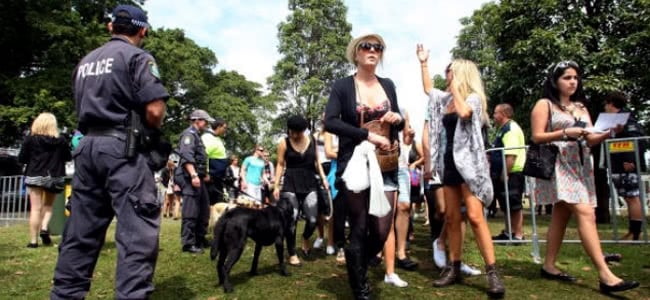The death of a 25-year-old woman at Stereosonic festival in Sydney over the weekend has reignited debate over Australia’s current approach to illicit drug use. The woman reportedly died after ingesting a mixture of different drugs.
As Yahoo News reports, Sylvia Choi, a qualified pharmacist from Sydney’s Oyster Bay region, allegedly took a mix of ecstasy and MDMA inside a water bottle on Saturday. She collapsed just minutes after taking the concoction.
Choi went into cardiac arrest after taking the mixture and died at Concord Hospital later that night. Her death comes as another 22-year-old woman woman from the UK was placed in an induced coma after attending the festival.
Meanwhile, police charged 69 people with possessing and supplying drugs, a number police called “alarming and disappointing”. Stereosonic organisers have released a statement urging punters to “stay safe and look out for each other”.
Ms Choi is not the first music festival punter this year to lose her life after taking drugs. Just two months ago, Tone Deaf reported on the death of 26-year-old Nigel Pauljevic, who was found unconscious during the Defqon.1 music festival.
This was followed last month by the death of 23-year-old Anneke Vo, who was found dead on the grounds of the Dragon Dreaming Festival in Wee Jasper in southeast New South Wales. Ms Choi’s death marks the third death at an Australian music festival in as many months.
While police are holding up Ms Choi’s death as a warning to other festivalgoers about the dangers of drugs, a groundswell of support for a rethink of Australia’s drug police has also arisen, with crosshairs aimed at police and lawmakers.
Speaking to triple j’s Hack, ER doctor and drug harm minimisation advocate Dr David Caldicott said the fact that deaths keep occurring despite the presence of police operations at music festivals means “we’re doing something wrong”.
“There has got to be a better way and as long as young people are dying from this in Australia, we’re doing something wrong,” he said. “The answer isn’t simply, in some sort of paternalistic way, to turn around and tell an entire community they’re naughty for using drugs, because they are going to use drugs.”
“Ms Choi’s death marks the third death at an Australian music festival in as many months.”Dr Caldicott made a plea to shift towards harm minimisation instead of harsh laws that penalise drug users. Speaking to Fairfax, Dr Caldicott said pill-testing is a crucial measure that should be implemented immediately.
“This is so mainstream in Europe now. There’s actually a guideline about how to best do it,” he said. “At no stage within this system is there any suggestion that we are encouraging drug use. Nobody ever gets told ‘this is great and you should use it’.”
Meanwhile, in a post to Facebook, Sydney law firm Dowson Turco called for the legalisation of all drugs, a measure they say would lead to less harm, safer drugs, and less overall drug use.
“It’s awful waking up to news that a young girl died at Stereosonic and another is in an induced coma,” they wrote. “It is heartbreaking and we are mad that junk is being sold to unwitting customers. But this is just another example of prohibition being ineffective and a waste of money.”
“If drugs were decriminalised – or even legalised – we are of the view that (based on evidence) less people would be harmed, less people would take drugs, drugs would be cleaner, money wouldn’t be wasted on police, consumers would be better informed and the courts wouldn’t be clogged up with drug possession offences.”
However, legalisation does seem a far-off pipe dream, as police and policymakers seem unwilling to budge even on the issue of pill-testing, with a police spokeswoman telling Fairfax data about the effectiveness of pill-testing in Australia is limited.
[include_post id=”458225″]
“Drug testing in its current format is both limited and unreliable and raises a number of serious health and legal issues,” she said. However, she said police encourage event organisers to “consider a range of actions that promote a safe environment where the potential for illicit drug use is high.”
Mental Health Minister Martin Foley said there are no plans to begin testing of drugs at public venues, but that the government supported a parliamentary inquiry that will examine laws on illicit and synthetic drugs and prescription medication.
Speaking to The Age, Rainbow Serpent festival director Tim Harvey suggested the time has come for Australia to rethink its approach to drug use, saying organisers are willing to look at drug checking “very seriously”.
“We need some progressive and brave politicians who recognise the current approach isn’t working and can communicate the benefits of changing strategies to the mainstream Australian population,” he said.

































